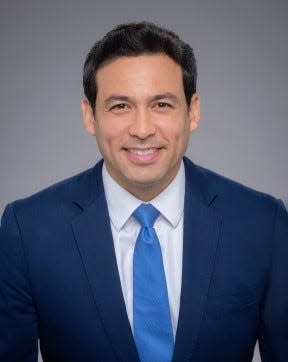Hawaii bill prohibits 'foreign influenced' corporations from political spending
Hawaii is the latest state to try to limit foreign influence on local and state elections, focusing on non-American investors who own significant stakes in U.S. corporations.
State Senator Chris Lee, the bill's sponsor, says the bill is "basically a mechanism to ensure that foreign influence doesn't penetrate our elections in Hawaii."
"We have a lot of foreign activity in Hawaii being out here in the middle of the Pacific," Lee told USA Today. "So there is definitely an interest in ensuring that whatever happens outside our borders doesn't influence and ultimately decide what happens here."
The Center for American Progress found that most U.S. companies on the S&P 500, including Apple, Amazon and Google, would be covered under foreign influence bans with 1-5% thresholds if the law goes into effect.
More: Hawaii elections: Here are important dates and a voter's guide to 2024
The Federal Election Campaign Act (FECA) prohibits political spending by foreign nationals at federal, state, and local levels. Hoping to go above and beyond FECA protections, several states, including New York, Minnesota and Massachusetts, and cities like Seattle and San Jose, have enacted or are considering similar measures to safeguard their electoral processes from foreign interference.
Lee said that he viewed Seattle, in particular, as a success story and inspiration for his bill. Called the Clean Campaigns Act, Seattle banned political donations from companies with over 5% foreign ownership in local elections in 2020 after Amazon donated $1.5 million to the city's Chamber of Commerce politician action committee in a failed effort to shake up the City Council race.
According to Reuters, at least 9% of Amazon's stock was owned by foreign investors in 2020.
"What was interesting about Seattle, once their law was put in place, the following election, the amount of spending from companies in elections changed pretty remarkably," Lee said. "It was local residents in Seattle, controlling their own elections that were making campaign donations, rather than millions and millions of dollars that could be given by other large interests."

What would the bill do?
The bill would end a legal technicality allowing donations. While FECA already bans foreign individuals - other than legal residents - from contributing to candidates, foreign companies with U.S.-based subsidiaries can contribute as long as U.S. citizens or permanent residents make the donations.
"A loophole in current law makes the United States vulnerable to foreign influence because foreign entities can invest in an American-based corporation," according to Michael Sozan, a senior fellow at the Center for American Progress. "And then that corporation can spend unlimited amounts of money on elections from its corporate treasury, often secretly."
If approved, the law would go into effect in January 2026 and prohibit non-U.S. entities or businesses from contributing to election activities within Hawaii.
What does "foreign-influenced" mean?
If a single foreign shareholder owns or controls 1% or more of the corporation's equity.
If multiple foreign shareholders collectively own or control 5% or more of the corporation's equity.
If any foreign entity directly or indirectly participates in the corporation's decision-making process regarding political activities in the United States.
More: Hawaii looks to combat AI-generated deepfakes and disinformation ahead of 2024 elections
The legislation aligns with a broader effort to combat the landmark Citizens United vs. FEC decision, where the U.S. Supreme Court ruled that corporations and unions can spend unlimited amounts of money on political activities, as long as they operate independently from political candidates and parties.
"We have, I think, precedent set here that tells us, hey, if there's something we can do, to ensure that our elections are in full, influenced and run by local people, then we ought to be doing that," Lee said.
Jeremy Yurow is a politics reporting fellow based in Hawaii for the USA TODAY Network. You can reach him at JYurow@gannett.com or on X @JeremyYurow
This article originally appeared on Arizona Republic: Hawaii bill seeks to ban foreign influence in elections.
